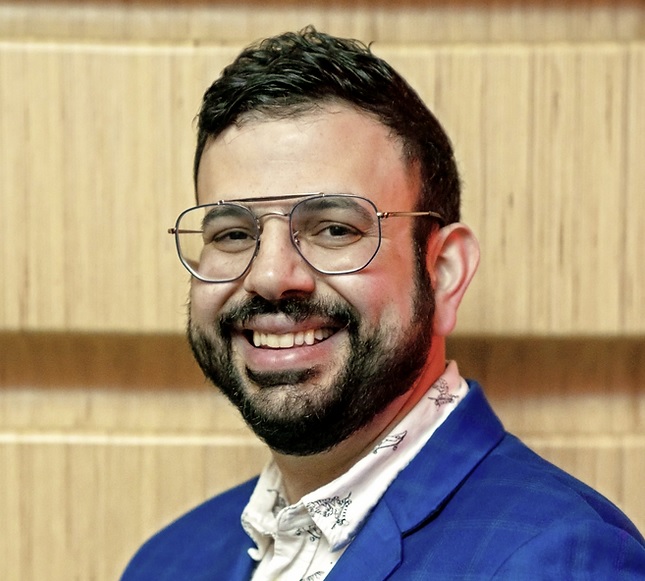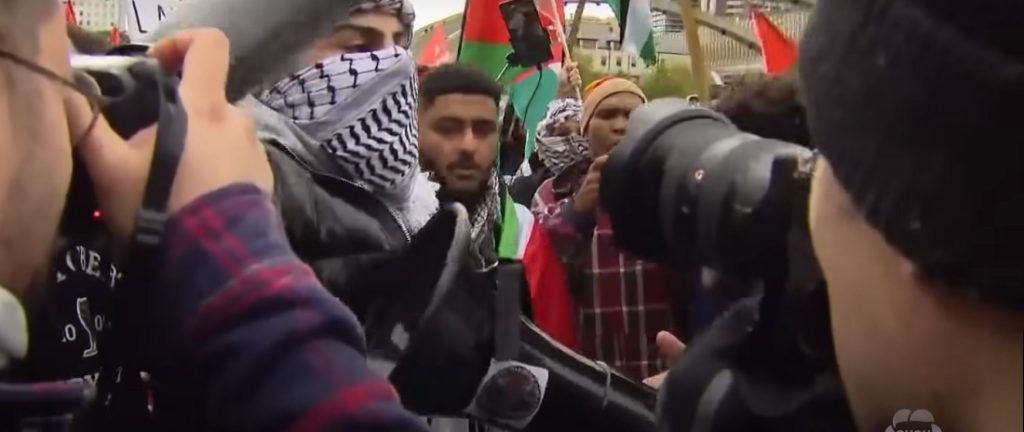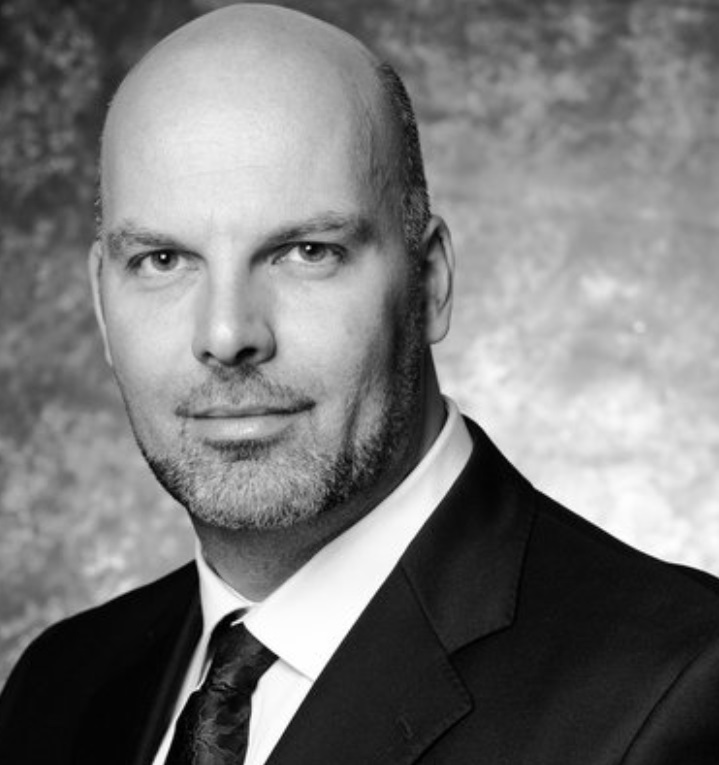The October 7 massacre in Israel has opened a floodgate of well-organized and well-funded protests in cities across Canada. Organized by the Palestinian Youth Movement and the Association of Palestinian Arab Canadians, the size of the intimidating crowds that have gathered in cities throughout the country dwarf the Arab populations of the communities in which they protest.

These pro-Hamas protests weren’t spontaneous outpourings of grief. According to the Toronto Sun, protesters were brought into the cities by a group that calls itself “The Plenty Collective” with the goal of causing “chaos.” “I don’t think these protests were spontaneous outpouring of feelings; they looked very well-organized and coordinated,” Daniel Koren, executive director of Allied Voices for Israel (AVI), an organization that works to combat hate and antisemitism at Canadian campuses, told Focus on Western Islamism (FWI).
There were three waves of protest, which did not seem to attract BLM and Antifa activists who dominated the streets a few years ago, but nevertheless resonated with liberals in Canada. The early protests, most of which took places in the downtowns and business districts of Toronto, Montreal, and Ottawa were clear attempts to distract people from the horrors of Hamas’s October 7 attack with calls for a ceasefire. Another goal of these protests, one of which took place in a Jewish neighborhood of Toronto, was to convince Canadians that the perpetrators of the massacre were victims. (We also saw this in the aftermath of September 11, when American commentators began asking “Why do they hate us?” within days of the attack.)
The culture of Canadian law enforcement is too ingrained in misplaced multiculturalism.
Collin May
Many protests during this first wave happened on college campuses, where participants went out of their way to harass Jews, with little response from the police. “Jewish students were targeted with propaganda, hate, and misinformation,” said Koren. Police in Toronto tried but “could not stop protesters from gathering in Jewish neighborhoods and threatening the communities,” he said. “They should have blocked and banned protests in Jewish neighborhoods.”
The second wave of protests took place during the Christmas and New Year holiday season. During this wave, activist showed up in places like Eaton Center in Toronto and shopping malls around Ottawa’s Parliament Hill. While at these popular malls, protesters harassed shoppers and shopkeepers while the police did nothing to constrain the protesters but did send noise fines to organizers in Ottawa. In one incident, at Toronto Eaton Center, hooded protesters harassed Jewish businesses and hurled death threats at police officers who stood by. In one instance, a Jewish-owned deli was the target of arson.
A third wave of protests took place throughout Canada on January 13, the 100th day after the massacre. In Toronto protesters gathered outside the Consulate General of Israel to lend support to the allegation of “genocide” by South Africa in the International Court of Justice. In Ottawa, protesters called for a ceasefire, and in Montreal, protesters gathered outside the house of Minister of Foreign Affairs Mélanie Joly.
Taken together, these successive waves of protest had a huge impact on Canadian civil society. Canada has historically strong ties with the State of Israel. Its laws prohibit any expression of antisemitism. Nevertheless, after a brief burst of support, Israel’s supporters stayed home in the weeks after the October Massacre while Canadians were subjected to lectures on “Islamophobia” by Amira Al Ghawaby who, like almost all Arab Canadians, brushed aside reports of Hamas terrorism and instead asked people to view them as a beleaguered minority.

The impact on Canada’s Jewish community has been striking. According to a Toronto police report in December, crimes against the Jewish community and businesses are up by 53 percent since October 7 attacks. There were 211 incidents of hate crimes against Jews from October 7 until mid-December, as opposed to just 11 incidents against Muslims. The Toronto police chief himself calls the rise in hate crime “staggering” and a “drain on police resources.”
Collin May, a human rights lawyer, says the overall timid response by law enforcement officials to the protests “is part of their normal penchant to dismantle and defuse conflict. Canada, including its police forces, is not equipped to deal with this degree of diaspora politics. Nor does it have the historical or intellectual framework to engage with the political and ideological forces at work. I suspect that law enforcement is rather overwhelmed by what is happening and is falling back on a strategy of least engagement.”

Canadian elites tolerate the protests in part because of their embrace of postmodernism in which “violence is justified as part of the ‘discourse of the oppressed,’” May said. “For many in the West who accept this postmodern narrative, Islam and the Palestinians have become the vanguard of anti-western liberation.”
Another problem is a misplaced commitment to multiculturalism on the part of Canadian law enforcement officials, explains Syed Sohail, director of Muslims Facing Tomorrow, a Toronto-based organization.
“The culture of Canadian law enforcement is too ingrained in misplaced multiculturalism. They are not very mindful of broader geo-politics at play here,” he said. “Like many other causes, the Palestinian cause swings towards the left of Canadian liberal politics and that could be one of the reasons.”
As 2024 proceeds, it appears the protests have become a regular weekend feature in downtowns in Toronto, Ottawa, and Montreal, putting the Liberal government of Justin Trudeau under mounting pressure from Opposition and civil society to do more to restore normalcy in Canada.
Mohammed Rizwan is a former Pakistani journalist whose work has appeared in the Washington Post, Telegraph and Khaleej Times.
